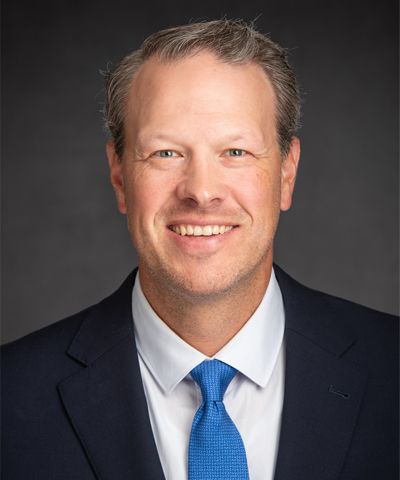
Introduction
Dr. Brody Maack earned his PharmD from North Dakota State University School of Pharmacy. He is an Associate Professor at North Dakota State University, specializing in ambulatory care and patient-centered medical homes. He is a clinical pharmacy specialist at Family HealthCare and coordinates clerkships in adult medicine. Dr. Maack’s research focuses on clinical service implementation, diabetes care, and tobacco cessation. Additionally, he holds certifications as a Board-Certified Ambulatory Care Pharmacist and Certified Tobacco Treatment Specialist. Learn more about his work here.
Why Pharmacy
Upon graduating pharmacy school, I completed a PGY1 residency, which had a large emphasis on ambulatory care and consultant pharmacy. The skills gained from the residency program were vital to helping provide me with the confidence to practice in a variety of settings. My first job after residency was in a hospital, where I practiced as a medical/surgical pharmacist, and eventually primarily in emergency medicine. Due to the experience in ambulatory care I received during my residency, the hospital also asked me to develop their first ambulatory care pharmacist position in one of the health-system's clinics, as well as to help with medical resident education. This mixture of emergency medicine, ambulatory care practice, clinical service development, and teaching, provided the perfect background to allow me to obtain my current faculty role in academia! Besides teaching and practice, I also do practice-based research focused on implementation science, with the goal of expanding pharmacists clinical service provision, and serve as a CAP Center Scientist in the NDSU Center for Collaboration and Advancement of Pharmacy.
Career Journey
I am faculty at the NDSU School of Pharmacy, and as a part of that academic position, I have a clinical practice in ambulatory care at Family HealthCare clinic (FHC) in Fargo, ND. FHC is a federally qualified health center, which provides primary care services as a safety net clinic, where we provide health care to patients regardless of their ability to pay. Our patients are generally from diverse backgrounds with a variety of social factors that bring both joys and challenges on a daily basis! I practice in a clinical role, providing comprehensive medication management services in an office-based practice, and utilize a broad collaborative practice agreement with prescribing authority.
Current Role and Responsibilities
One of the things I love most about my job is that every day is completely different than the last! Half the week, I practice in the clinic. The other half of the week, I am at NDSU performing my teaching and research duties. A typical workday in the clinic involves arriving to review my clinic schedule, where patients are scheduled for follow up visits, telehealth visits, and new referrals from the medical providers on the team. These patients are scheduled for comprehensive medication management visits, who are often referred due to uncontrolled chronic diseases such as hypertension, diabetes, asthma, COPD, dyslipidemia, heart failure and more. This is followed by meeting with any APPE students on their ambulatory care rotation, to plan the approach for providing patient care for the day. Since one of my clinic responsibilities also includes managing the anticoagulation and hepatitis C clinics, I also review any outstanding/new lab work or referrals that need evaluating, and contact patients to discuss treatment plans (e.g. review INR's and discuss warfarin treatment plans, review patient cases for appropriateness of starting Hepatitis C treatment and develop the treatment plan). Throughout the day, I often have medical providers from our team stop by or call with questions or requests to see patients with them. I give all my patients my personal office phone number, so I often have calls to return to patients too! After completing all the patient care duties, documenting my visits, catching up on clinic meetings or memos/emails, and precepting students, the day usually flies by and then it's time to head to one of my kids' activities!
Challenges
Navigating the many disparities in social determinants of health that come with patients that we serve can be challenging. There are some days when my medication expertise has to take a back seat, and I need to help connect patients with social services, insurance enrollment specialists, housing, food resources, transportation and more! The need to identify these disparities and challenges is often important in helping patients achieve healthy living, and has become a regular part of my care delivery process in addition to comprehensive medication management!
Rewards
By far the most rewarding aspect of my clinician role is the long term relationships I am able to build with patients, and being able to celebrate successes they achieve with their health. Knowing that I play a part in those successes, along with our other healthcare team members, is very satisfying as an ambulatory care clinician.
Advice for Students and Aspiring Professionals
Keep an open mind, and find opportunities to explore ambulatory care in a variety of practice settings. My practice is one example of many different types of ambulatory care services, and amcare is a rapidly growing specialty! Once you decide you are interested in a career in amcare, consider planning to complete a residency program. Many, if not most, amcare positions are currently requiring at least a PGY1 residency, and some may also require completion of a PGY2 Ambulatory Care residency. Plan ahead to prepare yourself to be a strong residency candidate by working with your advisor to find opportunities to stand out. This might involve seeking opportunities to work or volunteer at an amcare practice, involvement in a student organization that provides amcare-related service opportunities, or getting involved with amcare-related practice based research.